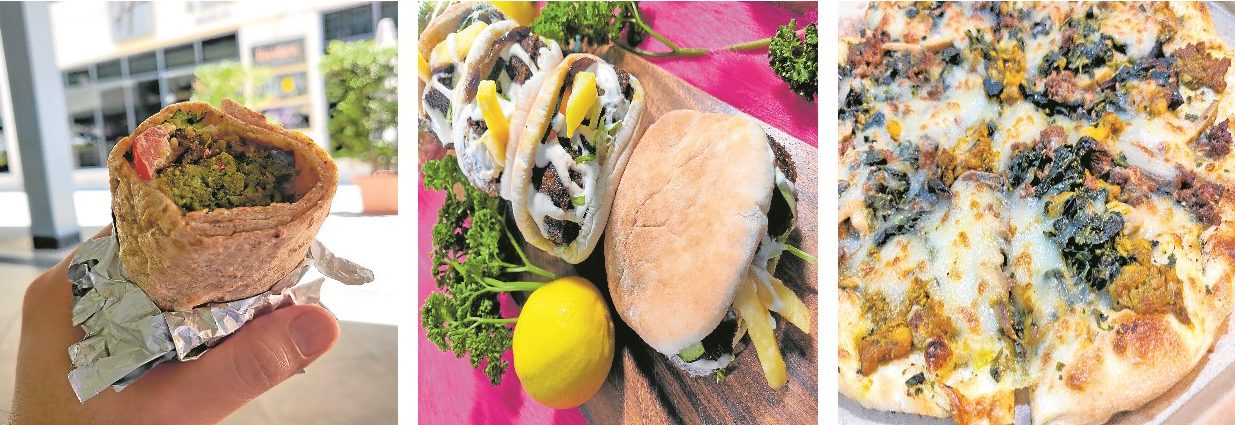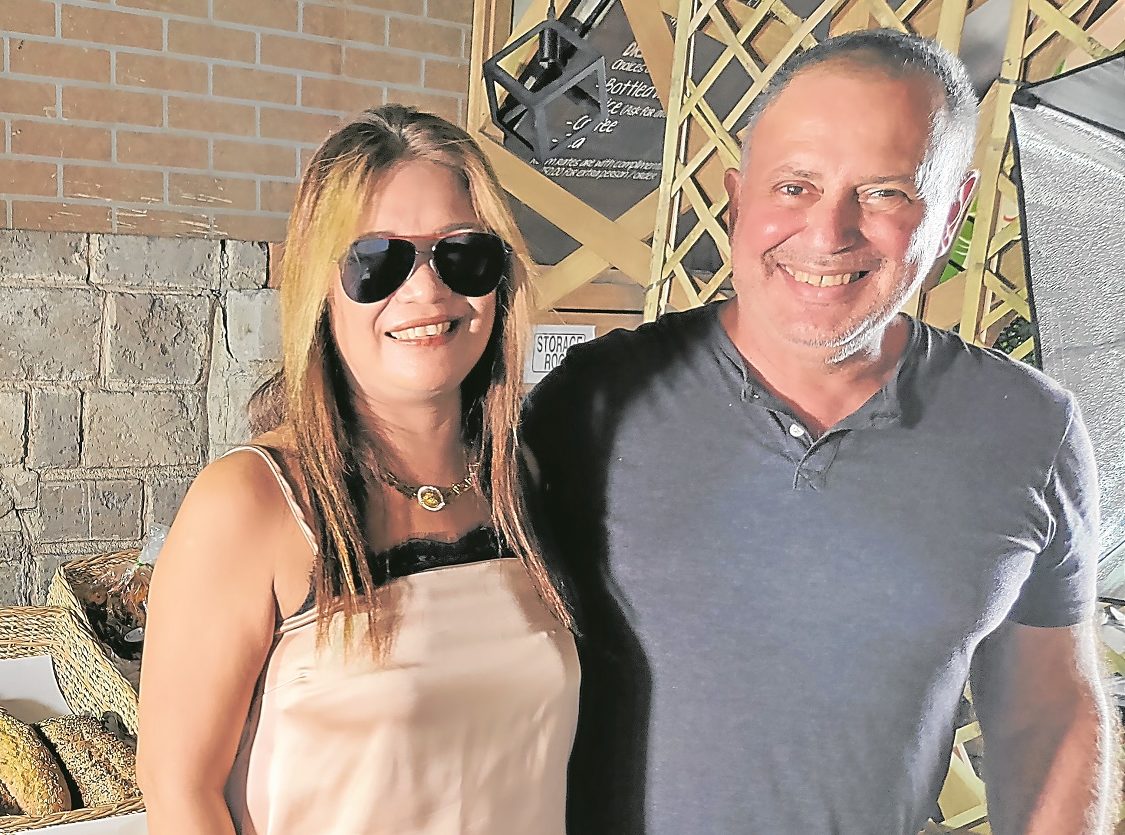Bread venture feeds a growing multitude

Customers may get pita falafel, falafel wraps and lahmajoun at Bait Lehem’s stall at the Legazpi Sunday Market.
When it first opened its doors in Mandaluyong City in 2013, Bait Lehem-House of Bread had only four staff members, serving mostly customers from nearby communities.
Called “Pick a Pita” back then, its menu consisted only of pita products. But now, the company has grown tenfold with 40 employees, serves a multitude of baked goods, from Mediterranean fare to filo pastry treats, and offers a variety of dips such as hummus, babba ganoush and matbukha.
Behind Bait Lehem, which derives its name from the Hebrew words for “house” (bait) and “bread” (lehem), is Israeli Michael Tweg and his Filipino partner, Cristine Areola.
“The idea is to help Filipinos establish a family income so people don’t need to go abroad,” Tweg told the Inquirer in an interview.
“When I was in Israel, I saw how migrant workers struggled with homesickness, and tirelessly worked just to provide for their families. I thought it shouldn’t be that way. It would be better if families stay together,” he shared.
First visit
The decision to set up shop in the Philippines was not a hard call to make, Tweg said. After all, it was love at first visit for him in 2012. “I saw a potential here, and also saw the needs of so many people. I wanted to give people the opportunity to work,” Tweg said.
The challenge at that time, he said, was getting Filipinos to appreciate food they are not too familiar with.
“Most of our products [though] are common in the Holy Land, a lot of what we eat day-to-day in Israel and found in every street in the old city,” Tweg explained.
Apart from exposing Filipinos to traditional Mediterranean food, the entrepreneur said he also wanted to show the people “a way to eat healthy, without any chemical or preservatives, to improve their lifestyle.”
It took him two months to develop the products he wanted to introduce to the Filipino palate. And while most of the ingredients are locally sourced, he had to import the spices to bring the authentic taste of traditional Mediterranean cuisine.
“I was about to give up, and gave myself around two to three days more before I pack my bags. But a miracle came and I found the right products to carry on,” Tweg shared.
He thought at first he would not stay long in the Philippines. He could not be more wrong. After eight years, the kitchen has grown to a commissary, churning out products that many Filipinos have come to love.
Tweg’s decades-long experience working in kitchens in the United Kingdom, Spain, Belgium and New York helped him expand Bait Lehem’s menu with items incorporating Western methods and Middle Eastern flavors.
Aside from its best-selling pita, its top products now also include the filo pastry treat baklava, coffee buns and hummus.
Its diversified product range also consists of flatbread with different toppings, a variety of bagels, baguettes, bourekas, sweet treats, artisanal loaves and ready-to-cook falafel.
Bait Lehem had also set up stores in El Nido and Coron in Palawan, further expanding its employee base. But when the island stores closed because of the slump in tourism as a result of the COVID-19 pandemic, Tweg brought his employees to Mandaluyong City.
Opportunity
“I don’t want them to lose their jobs. There’s more opportunity to sell here, and I also think it would be better to just gather them all where we’d all be safe,” Tweg said.
The global health crisis and the restrictions it brought to mobility and businesses had also compelled Bait Lehem to rethink its strategy and focus on online selling.
Weeks after the initial quarantine imposition in Metro Manila, Bait Lehem’s portal went online and started taking orders from Monday to Saturday.
But because it had already built a loyal customer base from the Legazpi Sunday Market in Makati City, which was also suspended because of the pandemic, the company decided to extend its online operations and accept orders all seven days of the week.
The demand was further boosted by new clients from different cities who, before the pandemic, were not able to visit the Mandaluyong City store and the Sunday market in Makati City.
The pandemic may have hurt the business in some ways, but Tweg and Areola found a way to navigate around the restrictions to grab the opportunity to serve markets they were not able to tap into before.
Now, aside from enjoying retail sales, Bait Lehem is also supplying baked goods to some of the country’s major dining outlets, such as cafés and Mediterranean joints.
“My vision is to grow into different cities in the Philippines, mainly to teach and to give opportunities,” Tweg said.
Before the business grew to what it is today, the Israeli baker had already visited several depressed locations in the country to teach Filipinos how to bake, and sell products to augment the family income. Bait Lehem has also been embarking on charity missions, bringing breads to frontliners and providing food in areas hit hard by the pandemic.
Freshness
And despite all that it has accomplished thus far, the company is still not letting up. Tweg said he was already negotiating with partners outside Metro Manila. He believes he can replicate Bait Lehem’s success in Metro Manila to other places by sticking to what had brought the customers to the brand.
“First is freshness, the food does not sit on the shelf. Customers basically order the night before to receive them fresh,” Tweg said.
He also boasts of the products’ quality as the highest, “because we don’t do any short cuts,” he continued.
Tweg also said using as much local ingredients as they can not only ensure their freshness and quality, but also provide business to local suppliers.
Aside from looking to expand outside Metro Manila, Bait Lehem has also further diversified its menu.
Soon, customers may order cooked pasta dishes from Bait Lehem online. Pasta packs which also include sauces, breads, and even bottles of wine, good for two or four people, will also be available.
At the rate it is expanding, it looks like Tweg is not about to leave the Philippines anytime soon.

